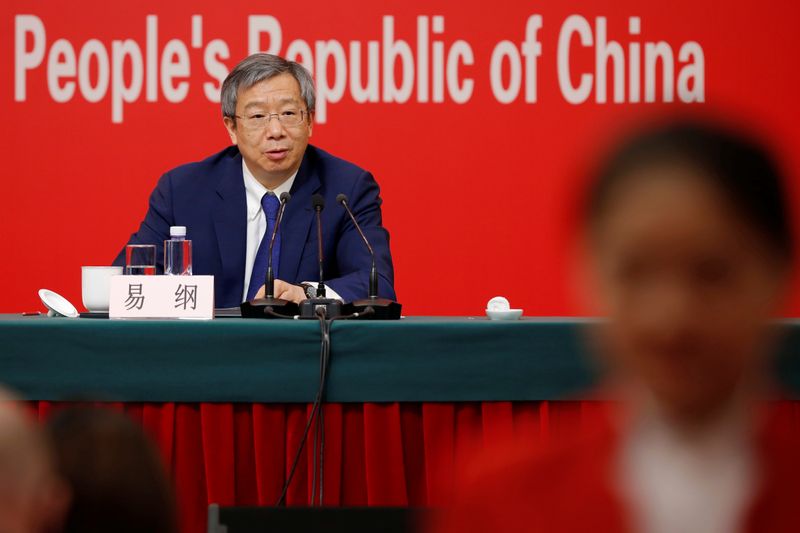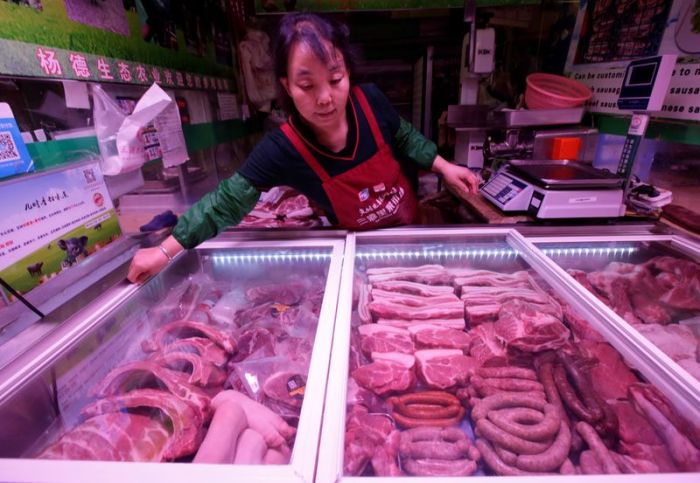BEIJING (Reuters) – China will strengthen its economic policy and continue efforts to lower interest rates on loans, central bank Governor Yi Gang said, reinforcing expectations of further support measures to revive an economy ravaged by the coronavirus pandemic.
Yi, in an interview published by the central bank on Tuesday, said China’s economic fundamentals are unchanged despite many uncertainties and reiterated that its current stance on monetary policy will be more flexible.
The People’s Bank of China will use various monetary policy tools to maintain sufficient liquidity, and keep the annual growth rate of M2 money supply and social financing significantly higher than last year, Yi said.
Since the virus outbreak, the central bank’s policy measures, including bank reserve requirement cuts, relending, rediscount facilities, have amounted to 5.9 trillion yuan ($827.63 billion), he said.
The central bank said on Monday that it had cut the reserve requirement ratio (RRR) for big banks to 11%.
China’s economy shrank 6.8% in the first quarter, the first quarterly contraction in decades, as the coronavirus took a heavy toll, and analysts say it could be months before broader activity returns to pre-crisis levels.
Chinese banks may face rising non-performing ratio, and pressure on disposing bad loans, Yi said.
China will help banks, especially small and medium-sized banks, to replenish capital through multiple channels, and improve their ability to handle bad loans, he added.
The impact on the global economy from a prolonged pandemic, and overseas financial market turbulence, could affect China’s balance of payments and cross-border capital flows, Yi said.
The central bank will deepen reform of the loan prime rate (LPR), the benchmark lending rate, to help lower real lending rates, and will steadily unify benchmark deposit, lending rates and market interest rates,he said.
(This story has been refiled to correct governor’s last name in third paragraph)
(Reporting by Colin Qian, Se Young Lee and Kevin Yao; Editing by Kim Coghill & Shri Navaratnam)

























